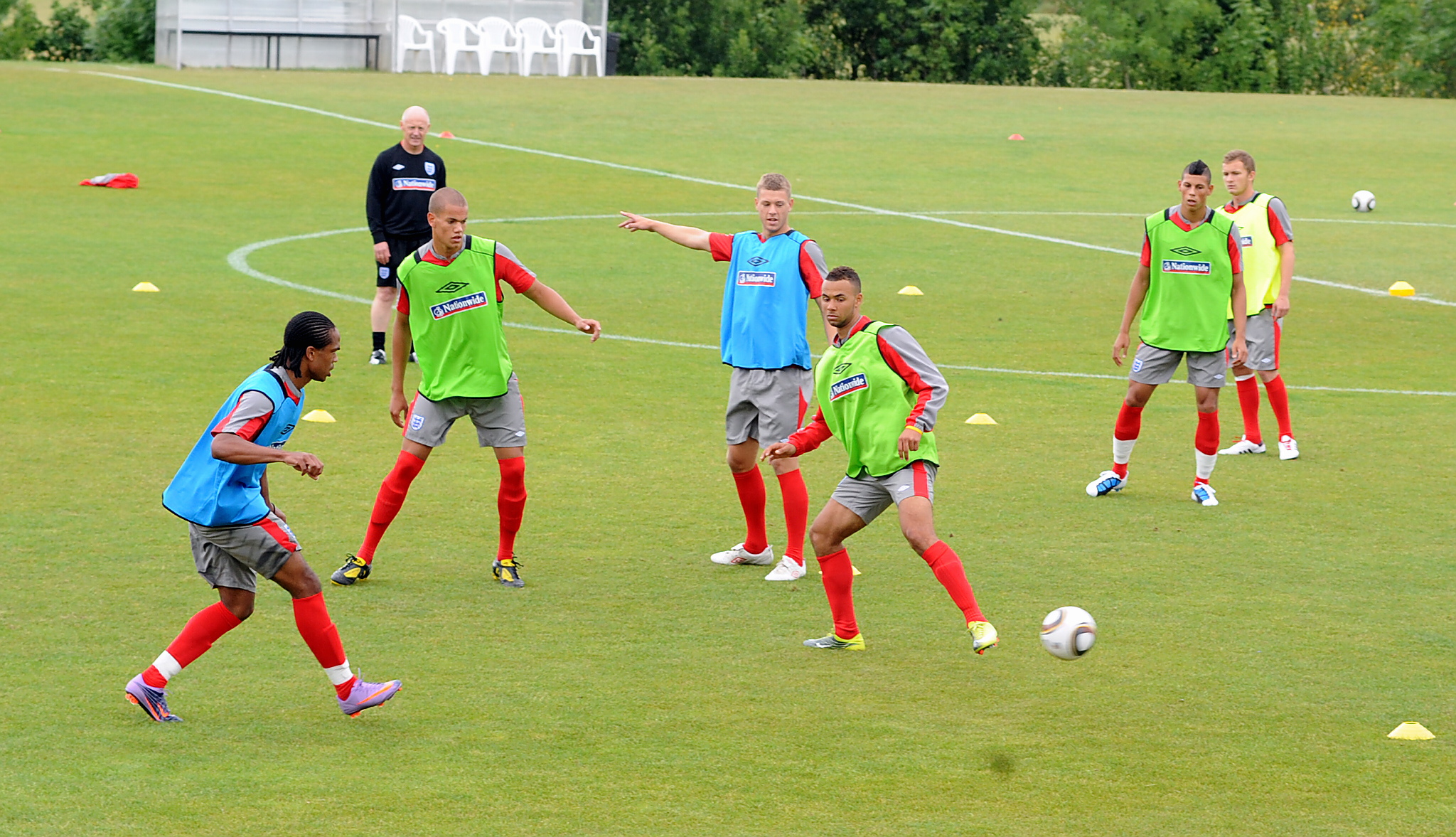In order to understand the passions of modern football, we need a quick look back into history. .
Football has existed, in one form or another, since the time of the ancient Greeks and Romans, possibly before. The Greeks played "ball games" known variously as episkyros or phaininda.
The Romans played a version of these games, which they dubbed harpastum.
The Chinese played ball games as well. We know this from the "Zhan Guo Ce," an ancient Chinese military manual, which tells us that they played a game involving a ball called cuju.

Versions of this Chinese game ultimately spread to Japan and Korea, where it became known as kemari and chuk-guk, respectively.
The history of football is long, and very interesting, but would take up too much space here. For now, let’s fast-forward a bit.
"Between 1324 and 1667, football was banned in England alone by more than 30 royal and local laws." [i]

The game had become so rowdy and disruptive that King Edward II issued the following proclamation on April 13, 1314: "Forasmuch as there is great noise in the city caused by the hustling over large balls from which many evils may arise which God forbid; we command and forbid, on behalf of the King, on pain of imprisonment, such game to be used in the city in the future"[ii].
The main reason for the ban, however, was that it distracted the citizenry from the practice of archery, which was deemed necessary training for war.

It was however, the British "public" schools (known as private schools elsewhere) that kept the game alive. It is believed that the public schools (Eton and Harrow, in particular) took the game away from the "mob" and civilized it through an organization of rules and codes of conduct.
As such, the game was transformed from a working-class game to an upper-class game.
The rules at this time differed, depending on where the game was played. There were no separate rules as yet for rugby and football, so what we think of as football was a jumbled mass of football, rugby, and other games of a similar nature.
The working classes at this time worked six days a week for 12 hours a day, including Saturday. Thus, they had little time for games, and, consequently, the British public schools controlled and strengthened the game from roughly the banning in 1314 through 1850.
In 1850, Parliament passed the Factory Act, which changed the law so that, "they could not work before 6 a.m. (7 a.m. in winter) or after 6 p.m. on weekdays (7 p.m. in winter); on Saturdays they had to cease work at 2 p.m."[iii]

As a result, children had more time to absorb games like football. Thus, the influence of the public schools began to wane, and the heart of football was slowly passed back to the working classes.
Up until this time, football and rugby were virtually indistinguishable, because the rules of play were different depending on where you played.
This changed in 1863 with the creation of The Football Association (The FA). Several football clubs chose to withdraw from the FA because of two rules: the use of hands and tripping had been removed from charter for the league.
These clubs formed the Rugby Football Union in 1871, which finally separated associations of football and rugby. Modern football grew out of the work of the FA in England, and in similar associations around Europe.[iv]
The Industrial Revolution gave birth to modern football.
It was the small, provincial industrial towns that had the most successful clubs. This occurred for one very important reason: The industrial revolution occurred in these provincial factory towns.
Towns like Manchester, Dortmund, and Liverpool grew out of the Industrial Revolution.
Migrant workers from all over Europe flocked to these industrial cities for work. They had no ties to their new community.
In most cases, they didn't know the language, had few friends, and had no outlet outside of work. Football gave them something they could belong to.
It was a club, not just for the players, but also for the supporters. It gave them a sense of belonging, which they lacked.
They were strangers in a strange land, and football became their passion. The game became a source of civic pride for its supporters.
What started as local support among provincial townspeople soon grew to encompass supporters from other areas.

The football team became a microcosm of society. It became a leisurely outlet for the collective provincialism, sectarianism, and nationalism of its supporters. Later, religion and politics would play a part as well, as the rivalries between the Celtic and Rangers in Scotland, or Barcelona and Madrid in Spain, can attest to.
Often times, the football team became the outlet for the embittered passions of a populace that had no outlet for its frustrations. Rivalries became an "us" vs. "them" affair in which violence was not unknown.
At its worst, these social passions devolved into hooliganism and violence.
Thus, football has become a by-word for sectarianism. While the collective passions, and frustrations, of the supporters often result in violence, more frequently they create a passionate spectacle that is unrivaled in sports.
This, then, is the story of why football fans are so passionate. Yet this is the prelude, not the postscript.
Below are our expert recommendations for Football :
1) Click here. Finally, a COMPLETE FOOTBALL TRAINING SYSTEM That Will Make You Stronger, Faster and More Explosive Than Ever Before
1) Click here. Finally, a COMPLETE FOOTBALL TRAINING SYSTEM That Will Make You Stronger, Faster and More Explosive Than Ever Before
2) Click here. There Are Three Different Playbooks For The Youth Football Coach- The Shotgun Jet/fly , The T Formation , And Pistol Formation Youth Football Playbooks.
3) Click here. (Free Presentation) 3 Times State Champion gives out his complete playbook.
4) Click here. Complete Playbooks - 20+ plays, offensive formations, defensive schemes, rules & regulations, coaching tips and ready for field play sheets
5) Click here. Here is where you will find the most simple and easy to use playbooks for Youth Football, Pop Warner Football, and Junior Pro Football.
If you have found this blog helpful to you in any way , please share it on facebook,google+,whatsapp,twitter , also like and share our facebook page https://www.facebook.com/innovativemarvels to get notifications on every new post posted on this blog


No comments:
Post a Comment